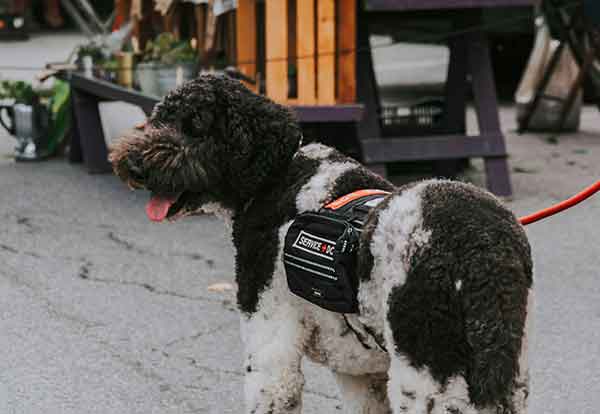Service dogs perform specific tasks for people with disabilities.
This requires a high level of focus, amidst distractions, and often involves much more than owners anticipate, and/or much more than they are willing to spend in time and resources.
For instance, if a dog is supposed to detect and alert a person to a panic attack or seizure, it can’t be greeting others or interested in squirrels, or it may miss the episode.
On the other hand, we have worked with clients with social anxiety, autism, etc. to help build confidence and social skills, in which case the dog would have a vest that says “Please pet me,” so the client can practice social interactions with people. Obviously, in this case, the dog would need to be one that enjoys petting.
Note: Each airline has its own rules regarding service dogs, and those rules are constantly changing.
Typically, a written letter is required (by a doctor) stating the need for a service dog, in addition to a letter stating the dog has a clean bill of health (from a veterinarian) and a signature by a certified trainer, deeming the dog safe to the public.
Note: We do not train guide dogs for the blind or protection dogs.

